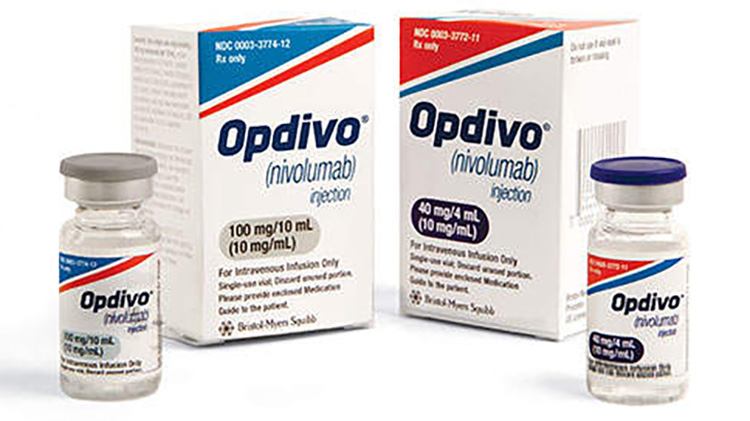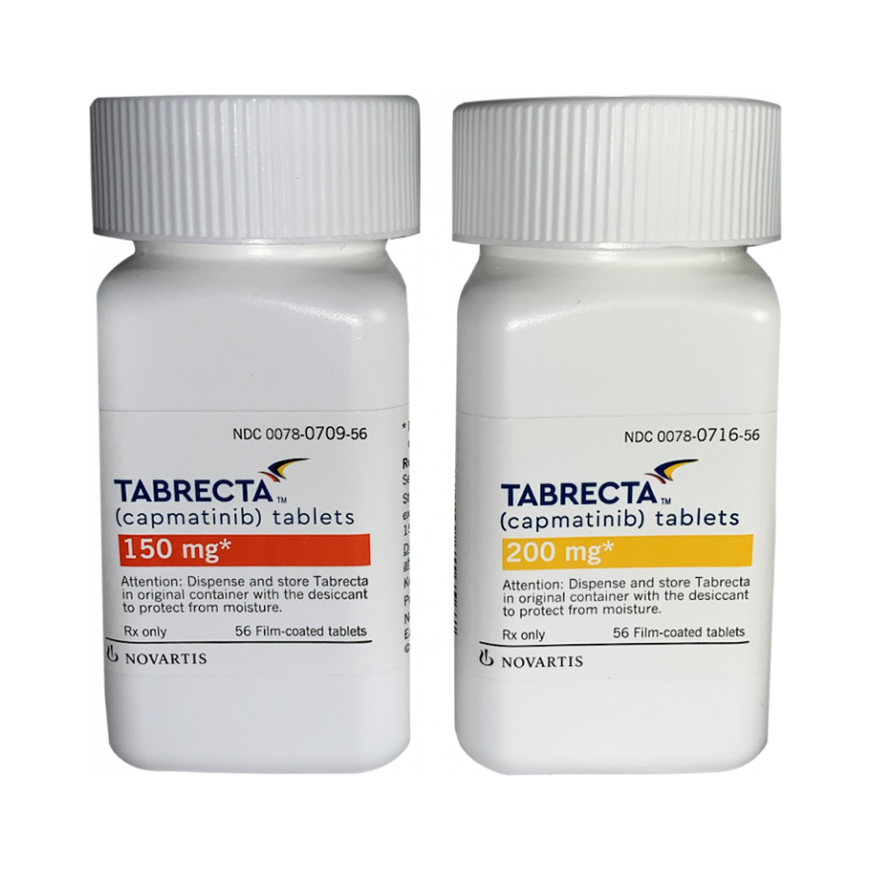Opdivo (Nivolumab) vs Tabrecta (capmatinib)
Opdivo (Nivolumab) vs Tabrecta (capmatinib)
Opdivo (nivolumab) is an immune checkpoint inhibitor specifically targeting the PD-1 receptor on T cells, used to enhance the body's immune response against various cancers, including melanoma, lung cancer, and kidney cancer. Tabrecta (capmatinib), on the other hand, is a selective MET inhibitor indicated for the treatment of adults with non-small cell lung cancer (NSCLC) that has a specific mutation (METex14 skipping mutation) as detected by an FDA-approved test. When deciding between these medications, it is crucial to consider the type of cancer and its molecular profile, as Opdivo is used for a broader range of cancers, whereas Tabrecta is tailored for a specific genetic alteration in NSCLC.
Difference between Opdivo and Tabrecta
| Metric | Opdivo (Nivolumab) | Tabrecta (capmatinib) |
|---|---|---|
| Generic name | Nivolumab | Capmatinib |
| Indications | Various types of cancer including melanoma, lung cancer, kidney cancer, bladder cancer, head and neck cancer, and others | Non-small cell lung cancer (NSCLC) with MET exon 14 skipping mutations |
| Mechanism of action | PD-1 checkpoint inhibitor that enables the immune system to better detect and attack cancer cells | MET kinase inhibitor that blocks the activity of the MET gene in cancer cells, preventing tumor growth and spread |
| Brand names | Opdivo | Tabrecta |
| Administrative route | Injection (IV) | Oral |
| Side effects | Fatigue, rash, musculoskeletal pain, pruritus, diarrhea, nausea, etc. | Nausea, vomiting, fatigue, edema, decreased appetite, etc. |
| Contraindications | Severe hypersensitivity to nivolumab or any of its excipients | Hypersensitivity to capmatinib or any of its excipients |
| Drug class | Monoclonal antibody, Immune checkpoint inhibitor | Kinase inhibitor |
| Manufacturer | Bristol Myers Squibb | Novartis Pharmaceuticals |
Efficacy
Opdivo (Nivolumab) in Lung Cancer Treatment
Opdivo (Nivolumab) is a programmed death receptor-1 (PD-1) blocking antibody used in the treatment of several types of cancer, including lung cancer. It is particularly indicated for patients with non-small cell lung cancer (NSCLC) who have progressed on or after platinum-based chemotherapy. Clinical trials have demonstrated that Opdivo can significantly extend overall survival in NSCLC patients compared to docetaxel, a standard chemotherapy drug. The efficacy of Opdivo has been observed across different subgroups of lung cancer patients, including those with varying levels of PD-L1 expression, a biomarker that can predict response to PD-1 inhibitors.
Opdivo works by inhibiting the interaction between PD-1 and its ligands, PD-L1 and PD-L2, which can help restore the immune system's ability to recognize and attack cancer cells. The improved survival rates in patients treated with Opdivo highlight its efficacy as a second-line treatment for NSCLC. However, the response to Opdivo can vary, and not all patients may benefit from its use, underscoring the importance of personalized treatment strategies in lung cancer.
Tabrecta (Capmatinib) in Lung Cancer Treatment
Tabrecta (Capmatinib) is a novel therapeutic agent approved for the treatment of adult patients with metastatic non-small cell lung cancer (NSCLC) who have mutations leading to mesenchymal-epithelial transition (MET) exon 14 skipping. This targeted therapy has shown significant efficacy in a patient population with this specific genetic alteration, which is present in a small percentage of NSCLC cases. Clinical trials have reported that Tabrecta can achieve substantial response rates in patients with MET exon 14 skipping mutations, leading to tumor shrinkage and, in some cases, prolonged periods of disease control.
Capmatinib's mechanism of action involves the selective inhibition of the MET tyrosine kinase, which plays a critical role in the growth, migration, and invasion of cancer cells. The targeted nature of Tabrecta's activity against MET exon 14 alterations allows for a more individualized approach to lung cancer treatment, offering a new line of therapy for patients who harbor these specific genetic changes. As with all targeted therapies, the identification of eligible patients through molecular testing is essential for the appropriate use of Tabrecta in clinical practice.
Regulatory Agency Approvals
Opdivo
-
European Medical Agency (EMA), European Union

-
Food and Drug Administration (FDA), USA

-
Health Canada

-
Pharmaceuticals and Medical Devices Agency (PMDA), Japan

-
Therapeutic Goods Administration (TGA), Australia

-
Medsafe (NZ)

Tabrecta
-
European Medical Agency (EMA), European Union

-
Food and Drug Administration (FDA), USA

-
Pharmaceuticals and Medical Devices Agency (PMDA), Japan

Access Opdivo or Tabrecta today
If Opdivo or Tabrecta are not approved or available in your country (e.g. due to supply issues), you can access them via Everyone.org.
How it works

Make an enquiry
Choose the medicine you want to buy, answer a couple of questions, and upload your prescription to speed things up. We’ll get back to you within 24 hours.


Make an enquiry
Choose the medicine you want to buy, answer a couple of questions, and upload your prescription to speed things up. We’ll get back to you within 24 hours.


Breeze through the paperwork
We'll guide you through the required documents for importing unapproved medicine, ensuring you have all the necessary information.


Get a personalized quote
We’ll prepare a quote for you, including medicine costs and any shipping, administrative, or import fees that may apply.


Receive your medicine
Accept the quote and we’ll handle the rest - sourcing and safely delivering your medicine.

Some text on this page has been automatically generated. Speak to your physician before you start a new treatment or medication.
Let's talk
If you have any questions, call us or send us a message through WhatsApp or email:
Contact us




